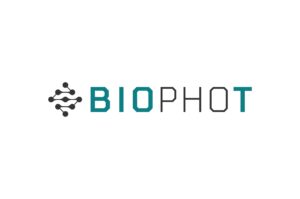 |  |
Project title: Long-term State Research Program «Research platform for innovative products in biomedicine and photonics» (BioPhoT)
Project No.: IVPP-EM-Inovācija-2024/1-0002
Period: 13.12.2024.-30.11.2026.
Project total costs: 17 100 000,00 EUR
Principal Investigator: Osvalds Pugovičs (Latvian Institute of Organic Synthesis)
Cooperation partner: Institute of Electronics and Computer Science (EDI), Institute of Food safety, Animal Health and Environment (BIOR), Institute of the Solid State Physics (ISSP), Latvian Biomedical Research and Study Centre (LBMC), Latvian State Institute of Wood Chemistry (LSIWC), Riga Stradins University (RSU), Riga Technical University (RTU), University of Latvia (UL)
Project summary:
This project aims at establishing of a long-term multidisciplinary Research and Innovation Platform implementing research and innovation projects in the sectors of biomedicine and photonics. The Platform includes Latvian Institute of Organic Synthesis (LIOS, coordinator), Institute of Electronics and Computer Science (EDI), Institute of Food safety, Animal Health and Environment (BIOR), Institute of the Solid State Physics (ISSP), Latvian Biomedical Research and Study Centre (LBMC), Latvian State Institute of Wood Chemistry (LSIWC), Riga Stradins University (RSU), Riga Technical University (RTU), University of Latvia (UL). The goal of the project is to deliver at least 35 new technologies at TRL at least 3 or 4 by 2032, and at least 23 of these technologies meet TRL 5 or 6.
Information published 13.12.2024.
Project progress:
Following the first round of the BioPhoT Research and Innovation Project (R&IP) competition, funding has been awarded to two R&IPs submitted by BMC:
Project identification No OSI_PIP_BioPhoT-2025/1-0032 “Functional liquid biopsies for the detection and monitoring of cancer”
Project identification No OSI_PIP_BioPhoT-2025/1-0030 “Enhanced hollow fiber bioreactor add-on for induced therapeutic EV production”
The first round of the “BioPhoT” research and innovation project (R&IP) competition has awarded funding to three submitted projects in which BMC is a collaboration partner:
Project identification No OSI_PIP_BioPhoT-2025/1-0021 “Smart Diagnostics: An Aptamer-Based Device for Rapid Malaria Detection”
Project identification No OSI_PIP_BioPhoT-2025/1-0051 “Bioactive Luminescent Coating for Antimicrobial protection”
Project identification No OSI_PIP_BioPhoT-2025/1-0055 “GENeric EXtraction module”
Information published 01.10.2025.

